Google have now finally unveiled their new cloud gaming service named Stadia, offering instant access to play games in Google Chrome.
What they joked was the worst-kept secret in the industry (no kidding), sounds like quite an interesting service. Certainly one that could eventually end up redefining what gaming is. A little hyperbolic maybe? I'm not so sure considering how easy this should be to jump into a game. On top of that, they very clearly talked about how it's built on Linux (Debian specifically) and Vulkan with custom GPUs from AMD.
Something they showed off, was how you could be watching a game trailer with a button to play it on Stadia and (supposedly within a few seconds) you would jump right into it. That's quite en exciting idea, one that would easily pull in quite a lot of people I've no doubt.
As for resolution, they said it will support 1080p and 4K around 60FPS at release with 8K being worked on as well but that sounds further out if anyone even cares about 8K right now.
They also showed off their new controller, with a dedicated Google Assistant button and a button to capture video immediately for YouTube:
While Google are making their own dedicated gamepad, they did say it will be compatible with other devices too.
They also announced partnerships with both Unity and Unreal Engine and Stadia will "embrace full cross-platform play" including "game saves and progression". They also had id Software, talk about how it didn't take long to bring the new Doom Eternal to Stadia, thanks to how they made the previous Doom game with Vulkan.
This means, that development for Linux is suddenly going to become a priority for a lot more developers and publishers. I don't want to overstate how important that is, but it's a very exciting prospect. This doesn't suddenly mean we're going to see a lot more Linux games on the desktop, but it's entirely possible after they go through all the work to get the games working on Linux with Vulkan for Stadia.
Stream Connect is another service they talked about. They mentioned how developers have pushed the boundaries of gaming but often local co-op is left out, as doing it multiple times in top-end games can require really beefy hardware. With Stadia, each instance would be powered by their servers so it wouldn't be such an issue. They also talked about how if you're playing some sort of squad-based game, how you could bring up their screen to see what they're doing which sounds very cool.
Google also announced the formation of their own game studio, Stadia Games and Entertainment, to work on exclusive games for their new service.
As for support from more external game developers, they mentioned how they've shipped "development hardware" to over 100 developers. From what they said, it should be open to smaller developers as well as the usual AAA bunch.
Stadia is confirmed to be launching this year and it will be first available in the US, Canada, UK and "most of Europe". One thing wasn't mentioned at all—price, but they said more details will be available in the summer. The official site is also now up on stadia.com and developers have their own website to look over.
Google also posted up some extra information on their developer blog:
Google believes that open source is good for everyone. It enables and encourages collaboration and the development of technology, solving real-world problems. This is especially true on Stadia, as we believe the game development community has a strong history of collaboration, innovation and shared gains as techniques and technology continually improve. We’re investing in open-source technology to create the best platform for developers, in partnership with the people that use it. This starts with our platform foundations of Linux and Vulkan and shows in our selection of GPUs that have open-source drivers and tools. We’re integrating LLVM and DirectX Shader Compiler to ensure you get great features and performance from our compilers and debuggers. State-of-the-art graphics tools are critical to game developers, and we’re excited to leverage and contribute to RenderDoc, GAPID and Radeon GPU Profiler — best of breed open-source graphics debugging and profiling tools that are continually improving.
There's probably plenty I missed, you can see their video on YouTube here.
As exciting and flashy as it sounds, it's obviously not Linux "desktop" gaming which is what the majority of our audience is likely interested in. However, things change and if it does become a huge hit we will cover it more often if readers request it. Linux gaming can mean all sorts of things from native games to emulators, Wine and Steam Play and now perhaps some cloud gaming so I don't want to rule it out. However, I can't see this replacing Steam, Humble, GOG, itch.io and so on for me personally.
Obviously there’s still a lot of drawbacks to such a service, especially since you will likely have zero ownership of the actual games so they could get taken away at any time when licensing vanishes. At least with stores like Steam, you still get to access those games because you purchased them. Although, this does depend on what kind of licensing Google do with developers and publishers, it might not be an issue at all but it’s still a concern of mine. Latency and input lag, are also two other major concerns but given Google's power with their vast networks, it might not be so bad.
Also, good luck monitoring your bandwidth use with this, it's likely going to eat up a lot all of it. YouTube and Netflix use up quite a bit just for watching a 30-minute episode of something in good quality, how about a few hours per day gaming across Stadia? Ouch.
That doesn't even address the real elephant in the room, you're going to be giving Google even more of your data if you use this service, a lot more. This is the company that failed to promptly disclose a pretty huge data leak in Google+ after all. I don't want to be some sort of scaremongering crazy-person but it's something to think about.
As always, the comments are open for you to voice your opinion on it. Please remain respectful to those with a different opinion on the matter.
Game preservation is also a pretty big issue with streaming services like this, since no one outside of Google and the developer/publisher will likely see the titles. Think of how amazing the emulation scene is for older titles and now with things like Steam Play enabling older titles to keep working long-past when they will probably break on Windows.
What happens when a developer/publisher vanishes? Are the contracts still valid or do Google then have to remove the game(s) and no one sees them again? Lots of situations like that going on in my head right now.
There must be some technical reason behind it, I guess.
Otherwise, NVidia would have surely just outbid AMD to get finally
back into the console-a-like AAA business again.
Yeah, I do know the Switch features a Tegra...
- If some AAA games start to be developed for these Stadia servers, i strongly doubt they'll be available for Linux desktop on others stores. I don't think Ubisoft or Square care about the tiny Linux market share, but i'm sure they care about the potential massive audience they could reach with Google
- Latency ( https://twitter.com/michaelphigham/status/1108086085077237760 )
- Game preservation
- Streaming is the worst DRM ever made, you don't own your games and you're screwed if a publisher want to remove a game (music licensing issue for example)
- They said nothing about prices, but i'm pretty sure it'll be a subscription model. And on Spotify, it doesn't seems to be a good model for indies ( « if you’re using a streaming service to listen to anything other than the most-streamed tracks, your money isn’t supporting what you’re hearing. » https://pitchfork.com/features/oped/how-to-be-a-responsible-music-fan-in-the-age-of-streaming/ )
- Actually, i don't think Google really care about indie gamedevs
Last edited by please_use_plain_text on 19 Mar 2019 at 11:25 pm UTC
A. It's literally the ULTIMATE walled garden and DRM rolled into one
B. It doesn't matter that it's running Linux; you're still running your games from somebody else's computer
Game streaming is also terrible for game presurvation. How exactly am I supposed to get the data files for, say, Morrowind to run in OpenMW off of a steaming service? You can't. You don't have to be a full-blown Stallman-ist to reject this "Netflix for games" crap on that token alone. But it doesn't end there, mods also get thrown out the Window. As do lewd games and games that even maybe violate anyone's IP.
And to add something new to the discussion: It's very energy inefficient. Streaming videos a already a huge waste of energy – and this has to be a lot worse.
Last edited by Klaas on 19 Mar 2019 at 10:21 pm UTC
1) I will not pay for a subscription service in order to play games. If the totality of the industry ever went that direction, I would stop playing new games. I am okay with a subscription-service option, as long as it isn't the only option (and as long as purchasing individual game licenses isn't made financially punitive). For me personally, Netflix didn't replace owning copies of films and programs, it replaced paying for subscription cable television service and physical media rental services. I still buy films I want to keep.
2) I will not tolerate advertisement overlays while gaming (e.g. banners ads while gaming) or third-party in-service ads (i.e. third-party ads displayed in the service interface). Ad proliferation has increasingly made YouTube less enjoyable to me (but YouTube is hard to avoid if looking for video clips), and I have higher expectations of a gaming service. For games developed by Stadia Games and Entertainment, unnatural in-game product placements (for a fictional example, [The Truman Show](https://youtu.be/43fqtIPGo2A)) would also be unacceptable. Ads displayed in a natural way (i.e. that seamlessly fit the world's environment, e.g. 1982's Blade Runner) would not be an absolute deal breaker.
3) Feeding more morsels to the data collection monster.
4) Any Stadia-exclusive publisher agreements.
At the moment, I am inclined to have as low an opinion of Google in the gaming space as I would Innovative Online Industries. "IOI believed that Halliday never properly monetized his creation, and they wanted to remedy that. They would start charging a monthly fee for access to the simulation. They would plaster advertisements on every visible surface."
Last edited by vector on 20 Mar 2019 at 12:30 am UTC
I love it how AMD managed to get the design win for this again. :)
There must be some technical reason behind it, I guess.
Otherwise, NVidia would have surely just outbid AMD to get finally
back into the console-a-like AAA business again.
That's easy I think. Google want to be free to use the graphics stack commercially. I'm not sure Nvidia blob allows that without licensing from Nvidia. Though they probably partnered with AMD anyway in some form to benefit both sides (like getting driver support and so on). But at least they are paying for support which is a normal method for FOSS, not for the right to use.
Last edited by Shmerl on 19 Mar 2019 at 10:55 pm UTC
I love it how AMD managed to get the design win for this again. :)
There must be some technical reason behind it, I guess.
Otherwise, NVidia would have surely just outbid AMD to get finally
back into the console-a-like AAA business again.
That's easy I think. Google want to be free to use the graphics stack commercially. I'm not sure Nvidia blob allows that without licensing from Nvidia. Though they probably partnered with AMD anyway in some form to benefit both sides (like getting driver support and so on). But at least they are paying for support which is a normal method for FOSS, not for the right to use.
That's probably it.
Didn't many people say NVidia will provide some open-source driver (not necessarily opening the current blob) when there is strong demand by the industry - not Joe user like you and me, ofc?
So are we there yet? :)
Edit: Also, maybe AMD is currently just faster when it comes to customization due to their long-term console design wins.
Last edited by sub on 19 Mar 2019 at 11:01 pm UTC
Disclaimer: I work at Google (though not on Stadia), previously Eidos Montreal (Shadow of the Tomb Raider).
Games running on Stadia are primarily native. Yeap, engines you never dreamed would support Linux, now do thanks to Google.
As Stadia has its own SDK, porting from Stadia to Desktop means adding SDL support and supporting the desktop swapchains. Personally, I think the biggest hurdle with desktop support would be testing and bug fixing, as with Stadia the game is really just tested on AMD. That said, as a desktop Linux gamer myself, I'm certainly hoping this would help get us more AAA games. :) If nothing, all the open source work means better mesa, faster kernel, more advanced profilers etc which are all good for our cause.
Very interesting point about SDL, thanks. For Stadia it indeed makes sense to have its own way of handling input then producing a video stream. Hopefully it won't be very difficult for developers to provide alternatives to Stadia SDK for the desktop case. May be SDL developers can collaborate with Google to make this easier.
Last edited by Shmerl on 19 Mar 2019 at 11:15 pm UTC
Didn't many people say NVidia will provide some open-source driver (not necessarily opening the current blob) when there is strong demand by the industry - not Joe user like you and me, ofc?
So are we there yet? :)
That can actually be the breaking point for them indeed. Time will tell.
Not natively, but native games isn't what stadia strives for.
I personally don't see developers going through the hassle natively supporting linux if they can utilize Stadia. If it succeeds.
I personally can see me using this platform for gaming. Latency will be the one thing to consider.
Last edited by STiAT on 19 Mar 2019 at 11:25 pm UTC
I personally don't see developers going through the hassle natively supporting linux if they can utilize Stadia. If it succeeds.
That's not a good thing. I'm not really interested in browser games limited by bandwidth and latency, that can't even be backed up, when I already have good enough hardware to run them at full performance directly. Let's hope it won't be too difficult for developers to make desktop versions from Stadia ones.
Last edited by Shmerl on 19 Mar 2019 at 11:36 pm UTC
Any big company using AAA custom engines probably has 0 issues porting to Linux other than not having a financial incentive at the moment.
The positive :
1st, now there are two huge company that push gaming on Linux, (i.e Steam and Google), and both of them work from two different angle. Steam, with its Proton aims to make Windows game can be played and distributed easily to Linux, without changing any code in developer side. Meanwhile, Google with its Stadia will brings its own SDK for creating native Linux game. So, Steam is working on compatibility while Google working on native side.
2nd, in Stadia, all games is played real time on Google server [0]. It means, now we don't need a huge beefy PC to play AAA game. In fact, I think what pushed Google to built Stadia is the fact that they have been successfully conquered the cheap laptop space with the Chromebook.
3rd, it's interesting to see what kind of technology that Google will bring for this. It seems Google will support up to 4K at 60 fps at launch, and it’s planning to support up to 8K resolutions and 120 fps in the future [1]. Streaming the video with that resolution is easy with Google, since YouTube already supported that. What interesting is how Google will do it while maintaining low latency from around the world.
The negative :
1st, it's Google. Excluding the privacy issue aside, Google IMHO is not really good at preserving data. For example, with Google+ gone, there are many post and article there that will be gone as well. However, since Google+ is mostly text and video, users can download the data, and Internet Archive is able to archive it. Now, with Stadia, since all game is exist in Google server, there are almost no way for us the user to preserving the game. Sure, it's the same with all DRM game, however DRM eventually can be cracked in future, while Stadia's game might be not, since it's not even exist in our PC.
2nd, it's Google. If you ever publish your app in Play Store, you might know that Google can suspend your account without notice, and there are almost zero chance to contest the decision. Forget human, even the bot might not answer your question. I wonder how it will go with Stadia.
3rd, how the payment method will be. Since the game is stored in Google's server, whether played or not, it will take resources to save. Therefore, one time payment might be not sustainable for this. So, there is possibility that the payment method will be subscription based, or there might be advertisement, or both. No matter which, I hate it.
4th, another new game store with its exclusive title. When Epic Store released, we thought the competition will make gaming world better. We thought Steam will increase portion for developer, cheaper game price, better client, etc. What happened, the new store is hoarding exclusive titles, while the old store doesn't improve at all. I believe this will happen with Stadia as well.
Conclusion
In the end, only time will tell, but I'm pessimistic about Stadia. I'm sure I wont use it though, considering I have small internet bandwidth :(
[0] https://news.ycombinator.com/item?id=19434267
[1] https://www.theverge.com/2019/3/19/18271702/google-stadia-cloud-gaming-service-announcement-gdc-2019
Last edited by Acrophobic on 20 Mar 2019 at 12:31 am UTC
Nearly no extra work required to port to Linux Desktop.
Worst Case Scenario:
Still not more native Games but more Vulkan Games
-> better performance in wine
And still they are contributing to mesa and the kernel etc.
I dont think that streaming games will takeover the "normal" gaming any time soon.
The input lag will be to bad in non urban areas.
So either way Linux Desktop will benefit from this.
This is a good chance for game journalism to ask hard questions rather than gushing over game announcements:
1) What data is Stadia going to track? Can users opt-out?
2) Has Google analyzed the implications of energy consumption?
3) Is this usable in underdeveloped countries?
https://twitter.com/AgustinCordes/status/1108088157562720257
With the increasing energy crisis the world is facing (while we're all comfortably using Twitter, there's still entire countries without access to electricity), is this really the sensible direction to take?
A question for everyone, though: Is anyone else surprised Google has backed off Google Fiber and having its own ISP? I mean, this is going to need gobs of bandwidth for low latency, 4K gaming. The ISP's/cable companies could put a serious crimp into Google's plans in our new non-net-neutral age. I imagined if they had this planned (and I think it could be really big for them $$-wise) they would still be working on being a low cost data provider... Ideas?Those ISPs wanted non-net-neutrality so they can push content at the same time. If they screw with Google nobody will ever find their shiny new content 'cause it will be buried on page 3 of every search.
If they wanted to, Ubisoft could already have released Assassins Creed Odyssey for Linux if they have a build working on Stadia.
Or Id Software, who said that they could easily port Doom to Linux but wouldnt do it because the executives didnt wanted to release on Linux.
For a technical standpoint, they are making a game for Linux in Stadia and there are no differences, but from a business standpoint Stadia is Stadia, not Linux. It's a gaming cloud platform by Google.
They will port Skyrim to Stadia but not Linux. Doom Eternal was already announced to Stadia but not Linux.
Porting to Linux can be easy as a click of a button, but until the executives from all this companys dont change their minds about Linux, then it wont change anything.
I honestly believe that devs will port games to Stadia but wont port to Linux.
If they wanted to, Ubisoft could already have released Assassins Creed Odyssey for Linux if they have a build working on Stadia.
Or Id Software, who said that they could easily port Doom to Linux but wouldnt do it because the executives didnt wanted to release on Linux.
Not every company is as messed up as Ubisoft and Bethesda. I.e. I don't expect many legacy publishers starting being more interested in releasing for desktop Linux, but this definitely lowers the barrier for those who are already releasing for Stadia.
Some more forward thinking publishers could be more desktop Linux friendly and Stadia could be the tipping point for them to start releasing for Linux in general. I.e. I wouldn't use Ubisoft and Bethesda as a good case study. Rather like bad ones.
Last edited by Shmerl on 20 Mar 2019 at 4:12 am UTC
With Stadia, you are paying for play time. If you go to the cinema, you don't think about DRM because you are not buying the movie, just watching it. Same with Netflix. If you ever played games at a game café, it was a similar situation to Stadia; you paid to play games the café owned, not you, and DRM didn't apply.
If you are not convinced, try to think what you could have done differently as an anti-DRM person if you were the lead of Stadia.
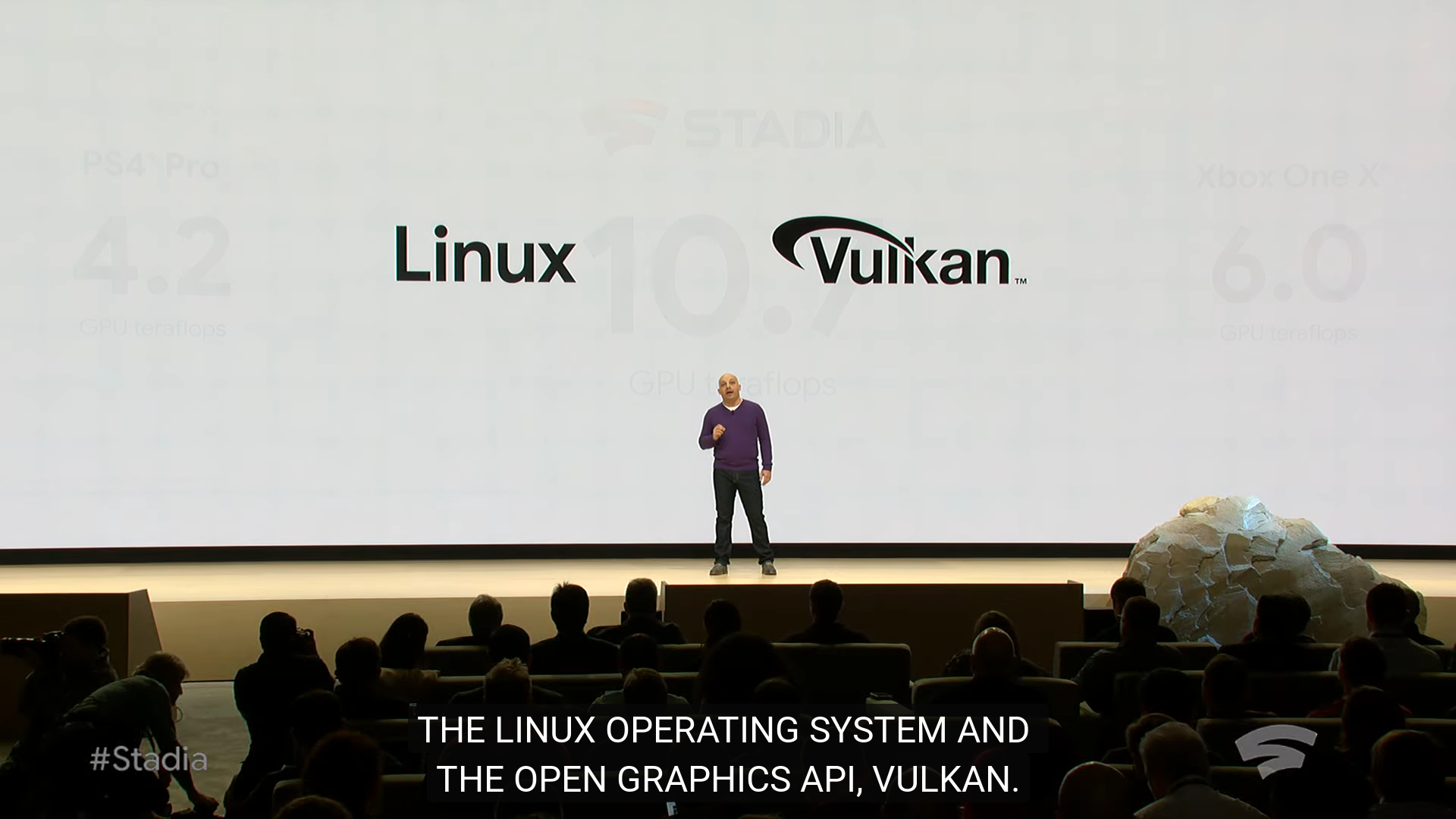
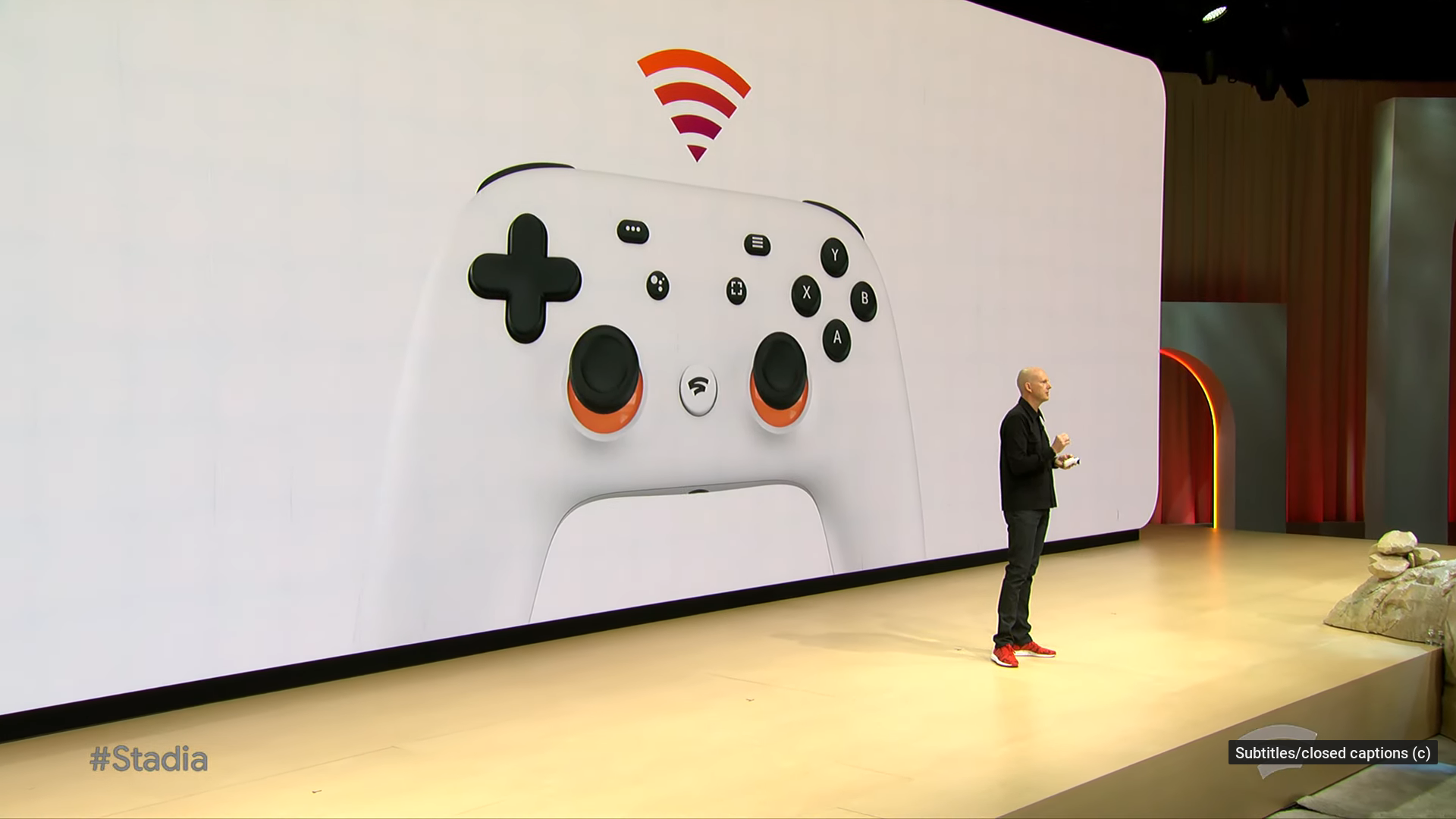
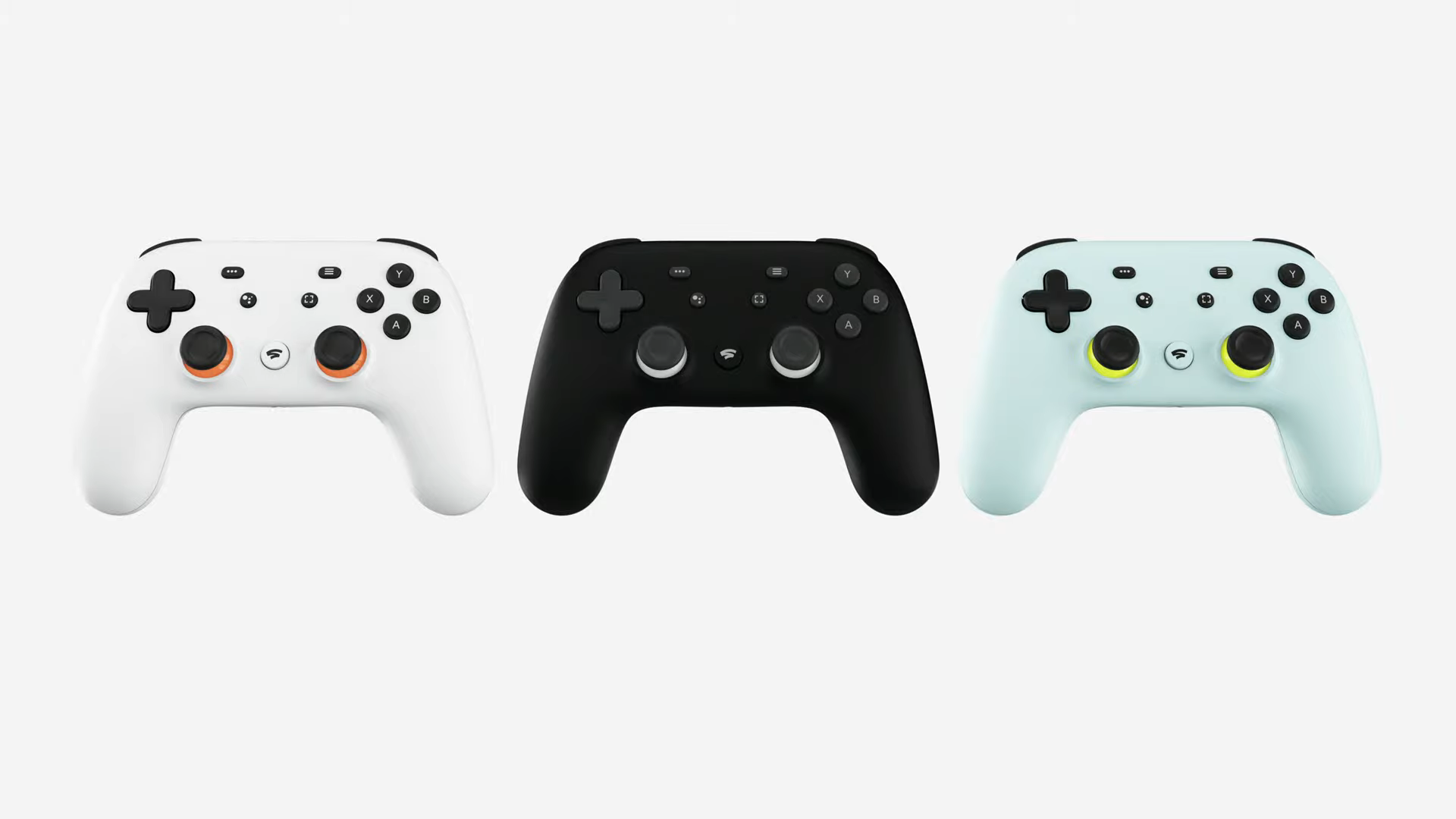
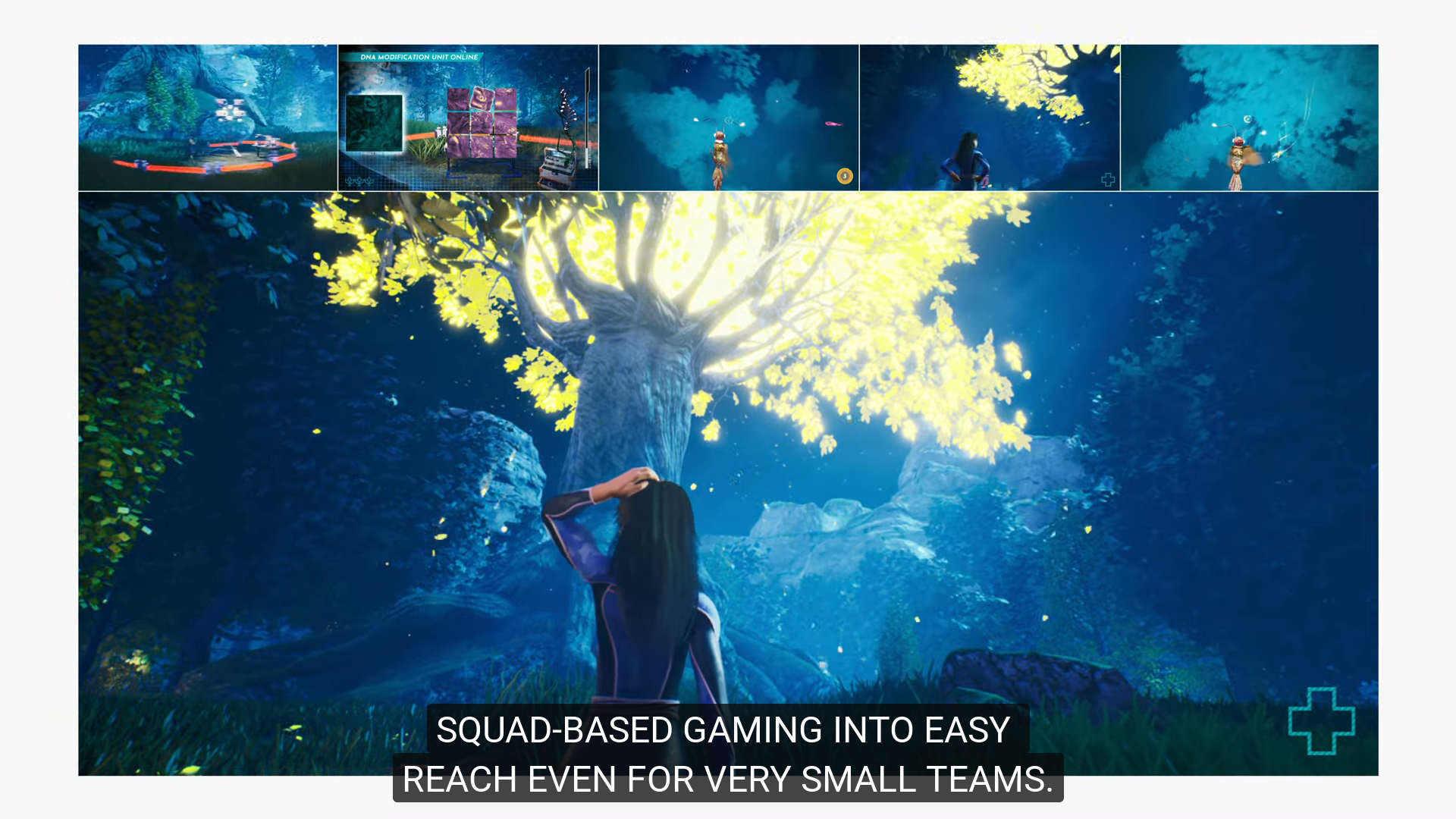
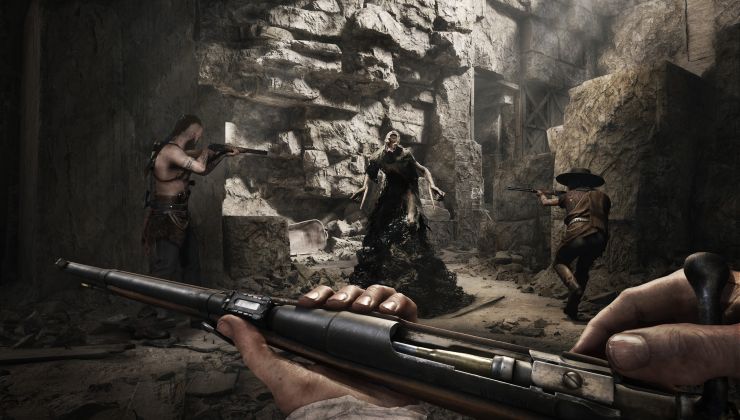


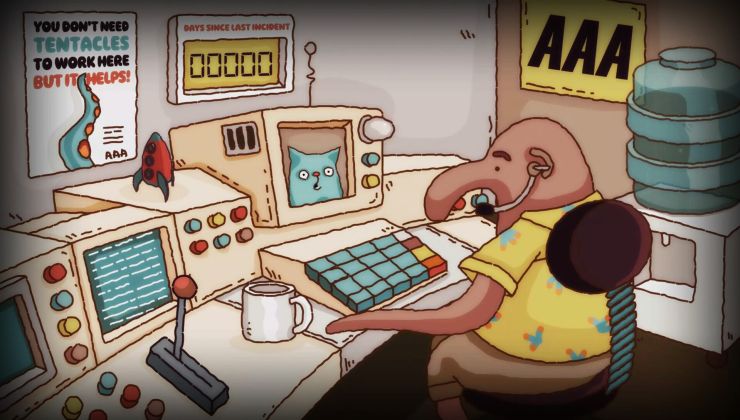








 How to set, change and reset your SteamOS / Steam Deck desktop sudo password
How to set, change and reset your SteamOS / Steam Deck desktop sudo password How to set up Decky Loader on Steam Deck / SteamOS for easy plugins
How to set up Decky Loader on Steam Deck / SteamOS for easy plugins
See more from me